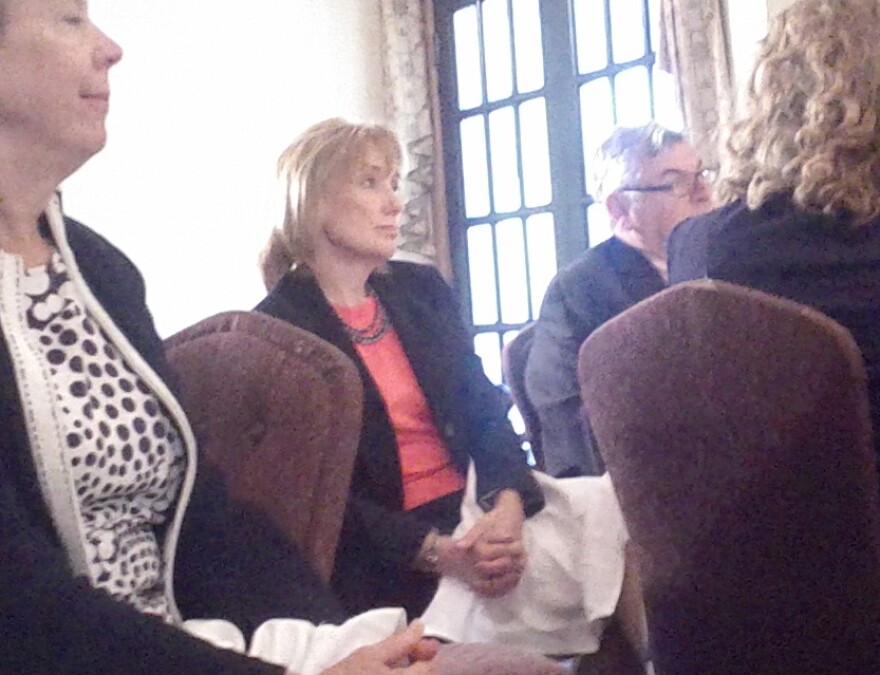Gov. Maggie Hassan said her administration will “closely review” how Thursday’s U.S. Supreme Court decision striking down a Massachusetts’ law that restricts protests outside abortion clinics will affect a similar law that will take effect in New Hampshire next month.
Hassan, who is in Turkey on a trade mission, signed a bill June 10 that authorizes reproductive health facilities that perform abortions to establish 25-foot buffer zones around the entrance. The law is set to take effect July 10.
In a statement, Hassan maintained that New Hampshire’s law is different than Massachusetts,’ and that it protects the rights of both patients and protestors.
“Women should be able to safely access health care and family planning services,” Hassan said, “and the bipartisan legislation that I signed earlier this month was narrowly tailored, with input from the law enforcement community and municipal officials, to ensure the safety and privacy of patients and the public, while also protecting the right to free speech.
“New Hampshire’s law is different than Massachusetts’, but we will closely review today’s decision to determine its impact, if any, on our state,” she said.
More on today's ruling: UNH Law Professor: N.H. Buffer Zone 'Vulnerable' After SCOTUS Ruling
The Massachusetts law was enacted after what abortion-rights activists said was a history of harassment and violence at clinics in the Bay State, including a 1994 shooting at a Brookline Planned Parenthood clinic that left two people dead.
Supporters of Senate Bill 319 argued it was necessary to counter verbal harassment and intimidation by protesters who block sidewalks and force patients into confrontations. During legislative debate on the bill, Planned Parenthood of New England pointed to dozens of complaints by patients of the organization’s Manchester facility.
Jennifer Frizzell, senior policy adviser for Planned Parenthood of Northern New England, said the organization is also reviewing the ruling to see if it affects New Hampshire.
Bryan McCormack, executive director of the conservative advocacy group Cornerstone Policy Research, criticized Hassan for signing the bill when a ruling on the controversial issue was imminent.
He said he expects a legal challenge to New Hampshire’s law in the wake of the Supreme Court’s decision.
“Governor Hassan used deplorable judgment in signing New Hampshire's law knowing that a ruling on the Massachusetts case was pending” McCormack said in a statement. “Peaceful pro-life witness outside abortion facilities is constitutionally protected and must be respected by law, as Cornerstone has held all along.
“The right to abortion does not trump the First Amendment," he said.
John Greabe, who teaches constitutional law at the University of New Hampshire School of Law, told NHPR that Thursday’s ruling “in no way speaks directly to New Hampshire’s law.”
Greabe said, unlike the Massachusetts law, New Hampshire’s statute contains several “factual findings” that patients and clinic employees have been subjected to fear and intimidation by demonstrators. And he said the civil penalties under the New Hampshire law are also much less strict than in Massachusetts, where violators are subject to criminal charges.
Still, Greabe said, based on Thursday’s ruling, the New Hampshire law may be vulnerable to a challenge on constitutional grounds.
“In particular, it was really important to the majority that the Massachusetts law made it difficult for people to get close to women who were entering the facilities so that they could converse with them in a conversational tone and extend in their hand literature to those people,” he said. “I think that language could well be relied on by people who wish to challenge New Hampshire’s law."
The New Hampshire Civil Liberties Union, which opposed the legislation, said the court’s decision raises “significant concerns about the constitutionality” of SB 319.
In a statement, the group said the ruling made clear that states have other alternatives for ensuring unencumbered access to abortion clinics, such as revised traffic ordinances and increased police presence when large crowds block a clinic entrance.
"We encourage the New Hampshire legislature to consider these constitutional alternatives as it revisits SB 319,” the ACLU-NH said.







